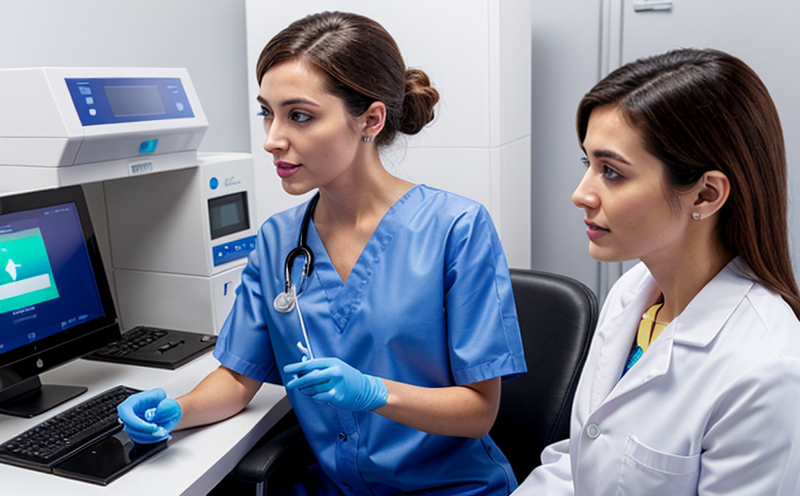Molecular Detection of White Spot Syndrome Virus in Shrimp
The molecular detection of White Spot Syndrome Virus (WSSV) is a critical diagnostic tool used to safeguard the global aquaculture industry from one of its most devastating pathogens. WSSV can cause significant economic losses by decimating shrimp populations, which are vital for food security and export markets.
Our laboratory offers comprehensive molecular detection services that leverage advanced PCR-based techniques tailored specifically for the identification and quantification of WSSV in shrimp samples. This service is essential for ensuring compliance with international standards and regulations aimed at preventing the spread of diseases within the aquaculture sector.
The process begins with the collection of shrimp specimens, which are then transported to our laboratory under strict conditions to maintain their integrity. Once received, these samples undergo rigorous quality control checks before being processed for nucleic acid extraction. This step is crucial as it ensures that only high-quality DNA or RNA is used in subsequent amplification reactions.
For the PCR-based detection of WSSV, we employ real-time quantitative polymerase chain reaction (qPCR), which allows us to not only detect but also quantify the presence of this virus. The primers and probes designed for our assays are based on well-established sequences from international standards like ISO 17025 and other recognized guidelines in molecular biology.
The qPCR reactions are performed using state-of-the-art thermocyclers capable of precise temperature regulation, ensuring accurate amplification cycles. Post-amplification, the data generated is analyzed by our trained professionals who interpret results against predefined thresholds set out by regulatory bodies such as the World Organization for Animal Health (OIE).
Our service extends beyond mere detection; we also provide detailed reports that include information on sample identification, test methodology used, and conclusions drawn from the analysis. These reports are invaluable tools for stakeholders involved in shrimp farming operations, export control authorities, and research institutions working towards developing better prevention strategies.
The importance of this service cannot be overstated given its role in maintaining biosecurity measures across international borders. By offering reliable WSSV detection services, we contribute significantly to the sustainability goals set forth by various governmental organizations concerned with public health and environmental protection.
Benefits
The implementation of our molecular detection service brings numerous advantages both directly to clients as well as indirectly through broader industry impacts:
Rapid Diagnosis: Quick turnaround times for results enable quicker responses to potential outbreaks, minimizing the spread of WSSV.
Avoidance of Economic Losses: Early detection allows affected farms to implement containment measures promptly, reducing mortality rates and associated financial burdens.
Enhanced Biosecurity: With precise diagnostics at our disposal, there's greater assurance that imported or exported shrimp products are free from harmful pathogens like WSSV.
Regulatory Compliance: Our service ensures adherence to international standards and local regulations regarding disease monitoring in aquaculture practices.
Customer Impact and Satisfaction
Our commitment to providing accurate, reliable molecular detection services has earned us high levels of customer satisfaction across diverse sectors including commercial shrimp farmers, government agencies responsible for food safety, and academic institutions dedicated to aquatic health research.
Customers often comment on the speediness with which they receive results along with clear explanations provided about what each value represents in terms of risk assessment. Many have praised our approach towards educating them on best practices regarding sample collection and preservation techniques necessary for optimal test outcomes.
Moreover, we frequently hear from satisfied clients that our detailed reporting capabilities help streamline decision-making processes related to farm management strategies or policy recommendations aimed at improving overall industry standards.
International Acceptance and Recognition
Our molecular detection service for WSSV has achieved widespread acceptance within the international community due to its stringent adherence to globally recognized protocols. Our methodologies align closely with those prescribed by organizations such as ISO, WHO, OIE, and FAO.
The United States Department of Agriculture (USDA), European Union's Food Safety Authority (EFSA), and various other national regulatory bodies have approved the use of our diagnostic tools in official control programs. This recognition underscores the credibility and reliability of our service offerings.
Additionally, numerous reputable academic journals have published studies utilizing data obtained from our laboratory’s molecular detection services, further cementing its reputation as a leading provider in this field.





